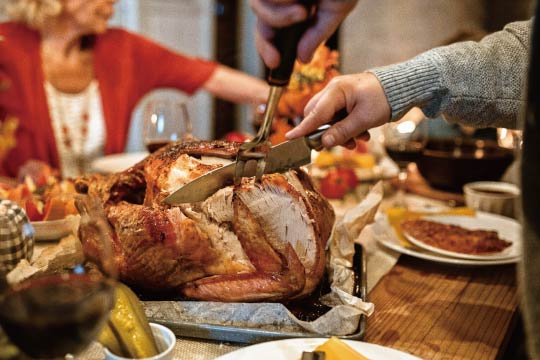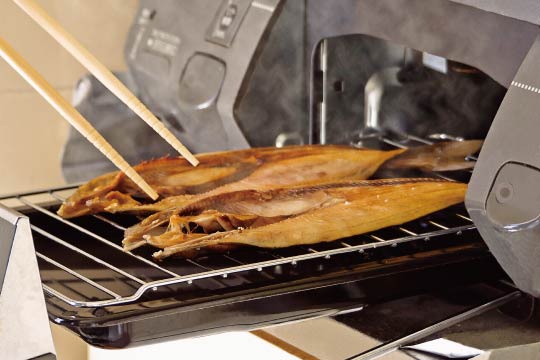News & Blogs
No critical thinking is necessary for attractive food.
Is turkey an acquired taste?
The grill is for fish, not for colossal poultry.
In this blog, we touch on diverse topics about Japanese food cultures, practices together with the culinary secret, TREHA®, and its important role in the Japanese food industry. We hope our blog helps you obtain in-depth knowledge of Japanese cuisine and the science behind it, which is hard to find elsewhere.
Critical thinking becomes nonexistent when delicious food is in sight.
Although I watch anime and do an excellent job following the stories, I don't watch dramas. I tried American and Korean dramas that are supposedly addictive, but I got lost in the plots because of my critical thinking habit.
Here is a problem. All kinds of questions and comments wash over me: "An average middle-aged woman is good enough looking, who probably stands out in my nearby supermarket. At this point, she is not an average woman" "This woman fights with zombies wearing 5-inch heels with perfect hair and make-up, whoa!" and "This extraterrestrial lifeform speaks perfect American English. I wonder why he chose English instead of Chinese?" I cannot focus on a drama played by real people.
I mumble comments and ask many questions to my husband, who watches the same show. What I am doing is to share my view while making sure that I follow the plot, but I end up with an irritable reaction, "I know about the story as much as you know. You lose it because you don't focus!"

Turkey would be an acquired taste unless you grew up with it.
Interestingly, my critical thinking habit does not kick in when I see enticing food items in a drama played by real people. My companionship with the turkey started when I saw an impressive giant roasted bird. When I tasted it for the first time after moving to the US, my impression was "a gamier, drier chicken." While registering the taste differences between turkey and chicken, my honest comment was "OK" instead of "yummy."
Looking back, I had the most memorable turkey at my supervisor's Thanksgiving dinner. His business associate sent him a 30+ pound behemoth of a winged creature, and its impact was tremendous in many aspects. The farm-fresh quality of the bird and outstanding cooking skills rewrote my view of turkey. I thought it was "outstanding" instead of "OK" from the bottom of my heart.

Where do I roast this colossal bird?
Though the Japanese recognize turkey from a US drama or movie, the taste and cooking methods are not shared yet. First, the flavor of "chicken" is so prominently registered on the Japanese palate that it conflicts with people's expectations because the shape of the turkey is similar to chicken. Turkey is an acquired taste in Japan.
Second, the whole turkey is not the best fit with the compact Japanese housing situation, even if small. Unfortunately, a long rectangular-shaped oven is designed primarily for grilling fish, not for a large bird! Last, turkey can be expensive and hard to obtain since there are not many producers.
According to many Japanese acquaintances, turkey tastes OK when processed into deli meat but is not appealing when roasted because they don't appreciate the smell and texture. They address they have no desire to cook it at home. It is a pity for them to miss out on the goodness of this great poultry without taking advantage of a generous US-sized oven. Familiarity has a significant influence on the judgment in taste. I am well aware that we have to consider turkey an utterly different animal from chicken. It is essential to try multiple times to acquire a taste just like I did. One of the Founding Fathers of the United States, Benjamin Franklin, loved turkey. I think the bird deserves respect.
I have the confidence to tell that each unique food culture comes with a delicacy, history, and people's values and customs - for example, a standard American Thanksgiving feast. The confidence comes from my family background and experience. Since I was a child, my parents, who ran two restaurants, encouraged me to taste various world cuisine. In addition, I had many opportunities to visit many new countries and tastes. I began to acquire a unique taste very quickly, which is a nice byproduct.
The blog post continues to next week. Keep tuned in to learn the secret ingredients.

Did you find this blog interesting?
Please share it with your friends in the food service industry.
We regularly update the blog about the food culture of Japan, where TREHA® was discovered for culinary applications.
Click here and send us a message to subscribe.
Or hit us up on Instagram @trehalose_sensei!

